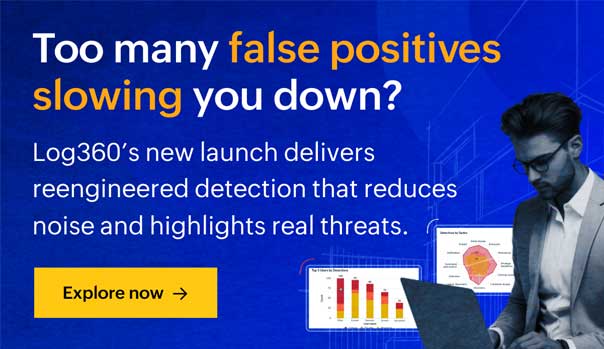- Home
- Correlation Rule Library
- Suspicious parent spawning spoolsv
Suspicious Parent Spawning Spoolsv
Rule added on 20th February, 2024In this page
Prerequisite:
The rule requires Sysmon and process creation audit policy to be enabled for proper functioning.
Rule type:
Correlation
Rule description:
This correlation rule is designed to detect potential threats by monitoring the processes that spawn spoolsv.exe (the Print Spooler service). Spoolsv.exe manages print jobs. If a suspicious process spawns spoolsv.exe, it might indicate an attempt to exploit vulnerabilities in the spooler service or inject malicious code into the printing process.
Data source:
Windows: User account, process, file, kernel
Relevant MITRE ATT&CK techniques and tactics:
Tactics: TA0002 - Execution, TA0005 - Defense Evasion
Techniques: T1059 - Command and Scripting Interpreter, T1036 - Masquerading
Sub-techniques: T1059.001 - PowerShell, T1036.004 - Masquerade Task or Service
Criteria:
Suspicious parent spawning spoolsv.exe:
- This rule targets processes ending with "spoolsv.exe" (including paths).
- It considers the spawn suspicious if the parent is not one of the legitimate services.exe locations.
When to enable this rule:
Enable this rule when the user wants to detect potential printer spooler service abuse or privilege escalation through suspicious parent spawning of spoolsv.
Compliance mapping (NIST, CIS):
- NIST CSF: DE.AE (Detection Processes) for identifying irregular activities related to the print spooler service.
- CIS Control: 8 (Malware Defense) to guard against malicious use of the spooler service for executing arbitrary code.
Next steps:
Upon triggering this alert, the following actions can be taken:
- Identification: Mark this alert as a part of an existing incident or initiate a new incident. Assign the incident to an analyst for in-depth examination.
- Analysis: Conduct an impact investigation and thoroughly analyze the degree of compromise utilizing the Incident Workbench to gain insights into the threat's severity.
- Response: Initiate automated workflow execution to swiftly terminate the identified malicious process, leveraging Workflows for prompt mitigation.


